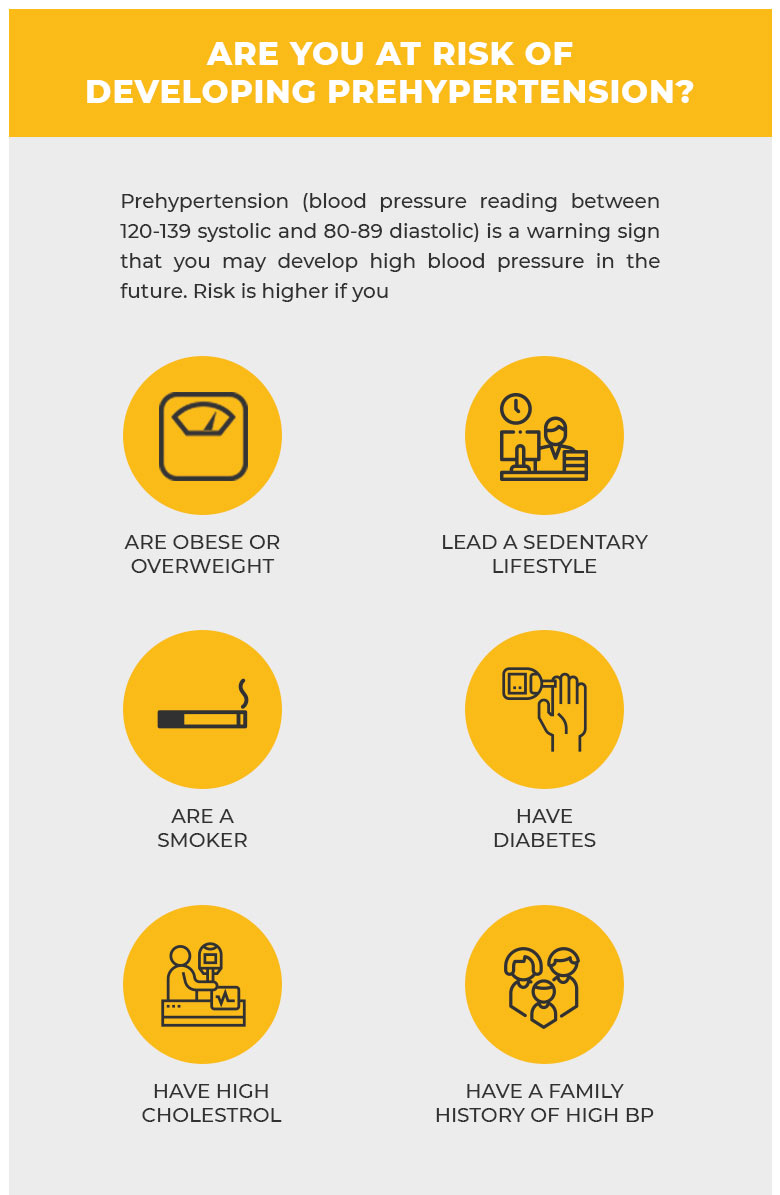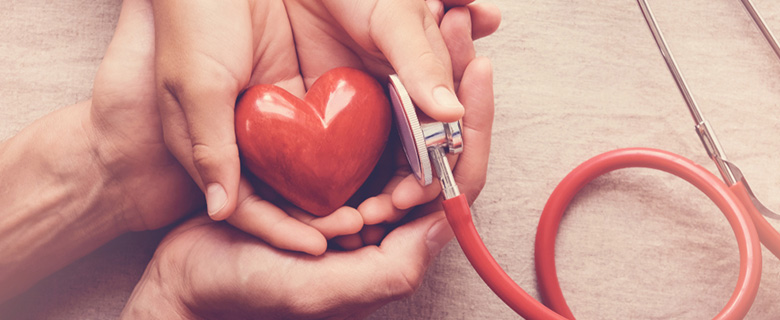Blood pressure (BP as it is generally known) is the pressure exerted by blood on the walls of arteries due to the contraction and relaxation of the heart. High blood pressure or hypertension means the pressure in the arteries is higher than normal.The normal range of blood pressure is below 120/80. When the blood pressure levels are 130 systolic or higher or 80 diastolic or higher and stay high consistently over successive readings then that condition is diagnosed as high blood pressure or hypertension.
In most cases, the patients usually display no high blood pressure symptoms and are mostly not aware that they have high BP until they get it checked specifically from the doctor, or worse some serious medical condition related to heart, arteries, kidneys or brain is detected.
In addition to no symptoms, in almost 90% of patients who suffer from high BP, specific causes of hypertension are not found. Although some early signs of high blood pressure such as headaches, blurriness of vision, difficulty breathing, dizziness, fatigue may be pointers, they are not decisive indicators.
So How Do You Manage A Patient With Hypertension?
Management of hypertension involves multi-approach treatment methods including adopting a healthier lifestyle and then including medications if required. With most patients diagnosed with either prehypertension or high BP itself, the first line of treatment to reduce blood pressure that the doctor would recommend is
Lifestyle Modifications

- Eat a wholesome, high-fibre, low-sodium healthy diet –the DASH (Dietary Approaches to Stop Hypertension) stresses on foods to reduce blood pressure with emphasis on a high fibre, low sodium food intake with lots of fruits & vegetables, whole grains, nuts, low fat dairy products, lean meats. In addition, limit salt intake to between 1,500 -2,300 mg per day as more sodium increases the risk of high blood pressure.
- Lose those extra kilos –Tbesity or being overweight are major factors for developing high blood pressure. Maintaining a healthy weight can help lessen he pressure on heart and arteries and control high blood pressure. Being in the normal weight range also reduces the risk for other health problems such as sleep apnea.
- Don’t smoke and drink in moderation –Smoking raises the blood pressure temporarily after every cigarette. Tobacco and nicotine put the person at a high risk of a heart attack and stroke. So completely quitting (and not starting if you don’t smoke) are the best health choices. Alcohol in moderation is ok (just one drink for women and tow or less for men daily) but excessive drinking raises the risk of high blood pressure.
- Workout regularly –Exercising daily for 30 – 40 minutes gets the heart pumping and oxygen flowing smoothly throughout the body. In particular, aerobics exercises such as jogging, fast walking, running, cycling, dancing are the better options.
- Manage stress levels – High levels of stress can increase blood pressure levels. Identify the stress triggers and work on a solution before the stress gets out of control. Yoga and meditation are known stress busters as are hobbies such as gardening, reading music etc.
If lifestyle changes are not enough to lower blood pressure then the doctor will prescribe
High blood pressure medication
- Diuretics-Diuretics or water pills are the first treatment option for high BP that remove excess water and sodium from the body, lessening the fluids flowing in the blood vessels, helping reduce the pressure on vessel walls
- Angiotensin-converting enzyme (ACE) inhibitors-The ACE inhibitors relax blood vessels by preventing the formation of a hormone called angiotensin
- Angiotensin II receptor blockers (ARBs)-The ARBs help relax the blood vessels by blocking the action of angiotensin (which are responsible for narrowing the blood vessels)
- Calcium channel blockers-Calcium channel blockers prevent calcium from entering the heart and blood vessel muscle cells which helps the cells to relax
- Beta blockers-Beta blockers, also called beta-adrenergic blocking agents, check the effect of the hormone adrenaline and help the heart to beat slower and with lesser force
- Renin inhibitors-Renin inhibitors slow down the production of renin (an enzyme produced by the kidneys that increases blood pressure) thus reducing their ability to increase blood pressure
Other medicines for high blood pressure that lower hypertension include
- Alpha blockers – Alpha blockers prevent the hormone norepinephrine (noradrenaline) from narrowing the muscles in the arteries and veins and helps the vessels to remain open and relaxed
- Alpha-beta blockers –Alpha-beta blockers function in a similar manner as the beta blockers and are prescribed to patients with high blood pressure with a risk of heart failure
- Central-acting agents –Central-acting agents block the signals from the brain to the nervous system for speeding up the heart rate and narrowing the blood vessels. This helps the heart pump less fast and also helps blood flow easily through the blood vessels
- Vasodilators – Vasodilators help widen (dilate) blood vessels and prevent their walls from narrowing which facilitates easier blood flow through the blood vessels. It helps slow the pumping of the heart as well
- Aldosterone antagonists –Aldosterone antagonists are generally prescribed to patients (along with another drug, mostly a diuretic) whose hypertension or high BP is difficult to treat such as elderly people, diabetics, heart patients etc.
After commencing treatment, patients must follow-up with their doctor at least once a month to check whether the lifestyle changes and medications are working. If the treatments are working, you can visit the doctor every 3-6 months to ensure that blood pressure levels are in control.

Note of caution: This article is for information purpose only. Always consult your doctor in case of any other blood pressure-related troubles.
Disclaimer
The information contained in this article is to educate, spread awareness in relation to hypertension and other diseases to the public at large. The contents of this article are created and developed by BPinControl.in through its authors, which has necessary, authorisations, license, approvals, permits etc to allow usage of this articles on The Website. The views and opinions expressed in this article are views, opinions of the respective authors and are independently endorsed by doctors. Although great care has been taken in compiling and checking the information in this article, The Website shall not be responsible, or in any way liable for any errors, omissions or inaccuracies in this article whether arising from negligence or otherwise, or for any consequences arising therefrom. The content of this article is not a substitute for any medical advice. The Website shall not be held responsible or liable for any consequence arising out of reliance on the information provided in the article.




